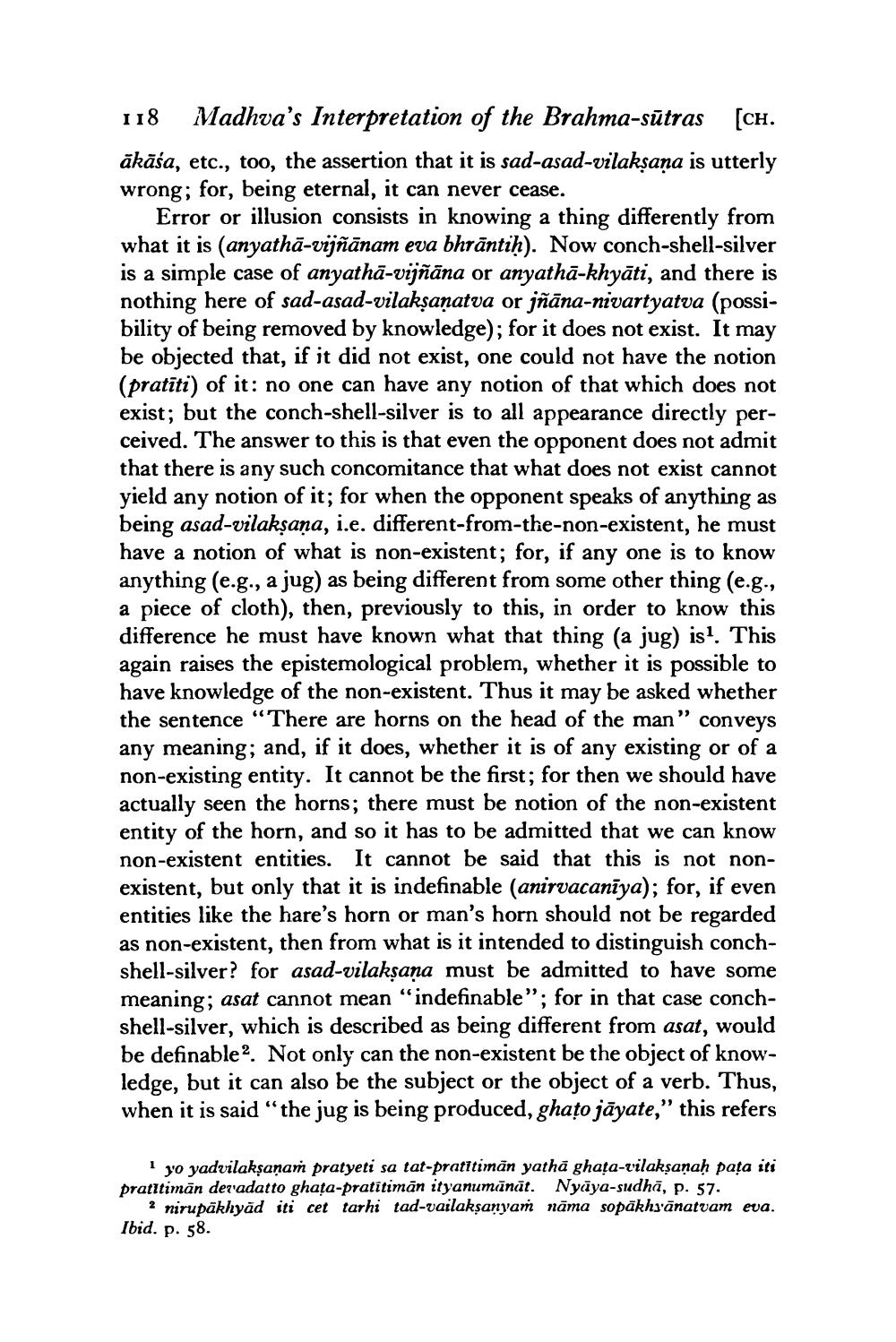________________
118 Madhva's Interpretation of the Brahma-sūtras [CH. ākāśa, etc., too, the assertion that it is sad-asad-vilaksana is utterly wrong; for, being eternal, it can never cease.
Error or illusion consists in knowing a thing differently from what it is (anyathā-vijñānam eva bhrāntiḥ). Now conch-shell-silver is a simple case of anyathā-vijñāna or anyathā-khyāti, and there is nothing here of sad-asad-vilaksanatva or jñāna-nivartyatva (possibility of being removed by knowledge); for it does not exist. It may be objected that, if it did not exist, one could not have the notion (pratiti) of it: no one can have any notion of that which does not exist; but the conch-shell-silver is to all appearance directly perceived. The answer to this is that even the opponent does not admit that there is any such concomitance that what does not exist cannot yield any notion of it; for when the opponent speaks of anything as being asad-vilaksaņa, i.e. different-from-the-non-existent, he must have a notion of what is non-existent; for, if any one is to know anything (e.g., a jug) as being different from some other thing (e.g., a piece of cloth), then, previously to this, in order to know this difference he must have known what that thing (a jug) isThis again raises the epistemological problem, whether it is possible to have knowledge of the non-existent. Thus it may be asked whether the sentence “There are horns on the head of the man" conveys any meaning; and, if it does, whether it is of any existing or of a non-existing entity. It cannot be the first; for then we should have actually seen the horns; there must be notion of the non-existent entity of the horn, and so it has to be admitted that we can know non-existent entities. It cannot be said that this is not nonexistent, but only that it is indefinable (anirvacanīya); for, if even entities like the hare's horn or man's horn should not be regarded as non-existent, then from what is it intended to distinguish conchshell-silver? for asad-vilaksana must be admitted to have some meaning; asat cannot mean "indefinable”; for in that case conchshell-silver, which is described as being different from asat, would be definable2. Not only can the non-existent be the object of knowledge, but it can also be the subject or the object of a verb. Thus when it is said "the jug is being produced, ghato jāyate," this refers
iyo yadvilaksanaṁ pratyeti sa tat-pratitiman yathā ghața-vilaksanaḥ pața iti pratitimān devadatto ghata-pratitimān ityanumanūt. Nyāya-sudhā, p. 57.
? nirupākhyād iti cet tarhi tad-vailaksanyaṁ nāma sopākhy'ānatuam eva. Ibid. p. 58.




